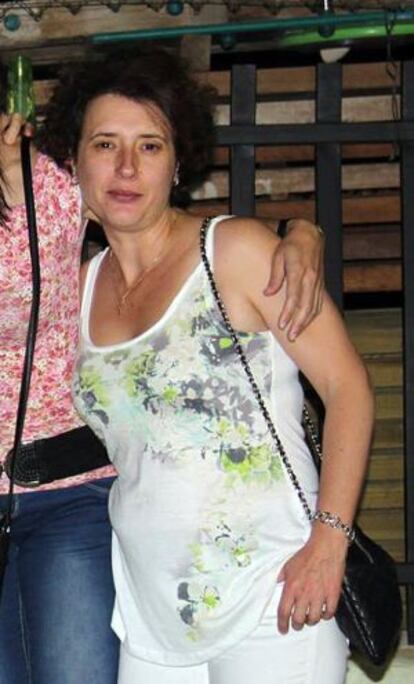Spanish nursing assistant tests negative for Ebola for first time
Second check needed to confirm if Teresa Romero’s body is free of the virus

The Spanish nursing assistant who became the first person to contract Ebola outside of Africa after treating two infected missionaries in Madrid has tested negative for the virus in her latest blood check, according to family spokesperson Teresa Mesa. The government’s scientific Ebola committee later confirmed the result on Sunday.
A second test still needs to be carried out to confirm Teresa Romero’s state, which will take place in 48 hours, but if it produces another negative result, doctors might then be able to conclude she has definitively overcome the virus.
Romero “is very excited and lively and is eager to get out,” said Mesa, who spoke with her friend Romero for the first time in hospital on Sunday.
But even if the second result does come back negative, Romero will have to remain in Madrid’s Carlos III Hospital – where she has been under care since October 6 – for some time to come. Her lungs have been badly affected by the virus – though latest reports say she no longer needs an oxygen mask – and she only began eating orally again three days ago.
Romero is likely to have to remain under observation for at least another three weeks – the incubation period of the virus – to ensure the infection does not come back. Only then will she be considered cured.
“Now we have to prepare her for what there is outside, we have already started telling her that her case has had a lot of repercussions,” Mesa explained. “I’ve told her that she is a heroine and that the whole of Spain is waiting to hear news about her.”
Mesa on Sunday also visited Romero’s husband, Javier Limón, who remains under observation in Carlos III Hospital with 14 others who came into contact with the nursing assistant when she was infectious. So far none has shown any signs of the disease. In a video distributed via Mesa, Limón confirmed the result of his wife’s blood test and announced that he plans to take legal action over the “great botch” that has been Spain’s management of the Ebola crisis.
There is no single explanation for why Romero seems to have been able to overcome the virus. The current outbreak has a mortality rate of 70 percent: there have been more than 9,000 recorded cases in Guinea, Sierra Leone and Liberia and 4,500 registered deaths – one in three people is cured despite the scarcity of health services in those countries.
Romero received two experimental treatments simultaneously – plasma from a nurse who overcame the disease and an antiviral drug – making it difficult to ascertain how each measure might have contributed to helping cure her.
Tu suscripción se está usando en otro dispositivo
¿Quieres añadir otro usuario a tu suscripción?
Si continúas leyendo en este dispositivo, no se podrá leer en el otro.
FlechaTu suscripción se está usando en otro dispositivo y solo puedes acceder a EL PAÍS desde un dispositivo a la vez.
Si quieres compartir tu cuenta, cambia tu suscripción a la modalidad Premium, así podrás añadir otro usuario. Cada uno accederá con su propia cuenta de email, lo que os permitirá personalizar vuestra experiencia en EL PAÍS.
¿Tienes una suscripción de empresa? Accede aquí para contratar más cuentas.
En el caso de no saber quién está usando tu cuenta, te recomendamos cambiar tu contraseña aquí.
Si decides continuar compartiendo tu cuenta, este mensaje se mostrará en tu dispositivo y en el de la otra persona que está usando tu cuenta de forma indefinida, afectando a tu experiencia de lectura. Puedes consultar aquí los términos y condiciones de la suscripción digital.








































